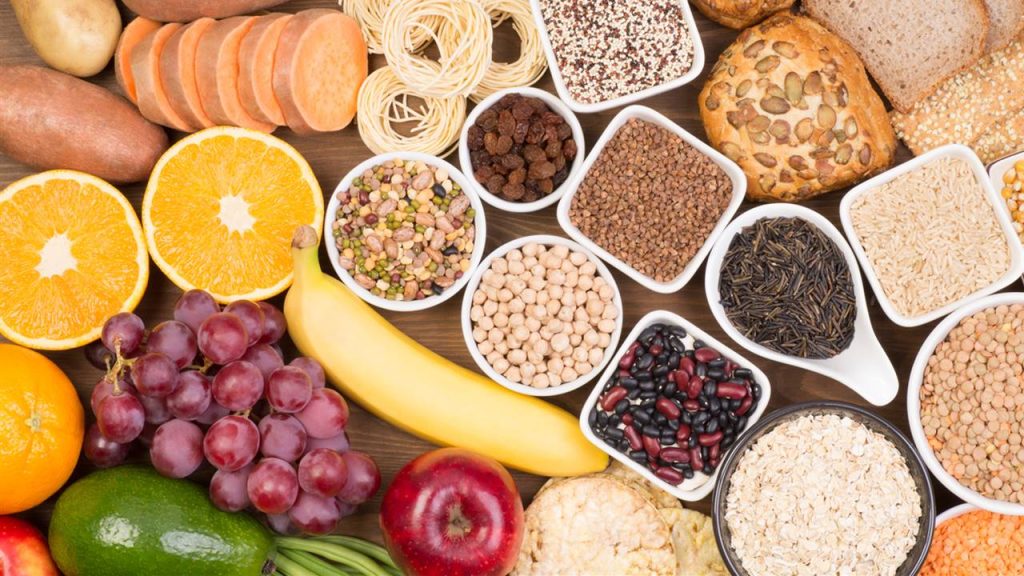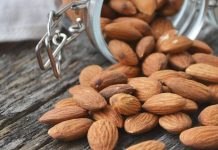Some foods fill you up longer and longer than others, while giving you few calories. We propose 10 satiating foods that will help you take care of your weight and your health.

Satiating foods usually have certain characteristics that help compensate for hunger: they have a high percentage of protein, a lot of fiber (which helps fill the stomach), a high volume and have a low energy density (that is, a low-calorie content for your weight). These are the 10 satiating foods of plant origin that are especially satiating.
10 SATIATING FOODS OF PLANT ORIGIN
These are the 10 satiating foods of plant origin that are especially satiating. We explain why in each case.
- 1. Boiled potato
- 2. Oats
- 3. Beans
- 4. Tofu
- 5. Spinach
- 6. Orange
- 7. Quinoa
- 8. Mushrooms
- 9. Almonds
- 10. Avocado
1. BOILED POTATO
Potatoes are a good source of vitamins and minerals, such as vitamin C and potassium. They are also rich in water and carbohydrates and provide fiber and protein, while barely containing fat.
In 1995, researchers at the University of Sydney (Australia) developed a satiety index from the assessment of a group of participants who ate different foods and scored how full they were after 2 hours. According to this index, boiled potato (without salt or added fat) is the most satiating food.
- It is believed that the reason they are so satiating is in a protein they contain (called proteinase inhibitor 2), which can suppress appetite.
2. OATS
Oats are low in calories and a great source of fiber (specifically a soluble fiber called beta glucan).
The key to making it so satiating is precisely in its high fiber content and its ability to absorb water and bloat, filling the stomach.
3. BEANS
Legumes are very nutritious and provide slow-digesting carbohydrates and a high content of protein and fiber. In addition, its energy density is relatively low. All this makes them very satiating foods.
- According to a study published in the journal Advances in Nutrition, legumes can help increase feelings of being full (at least in the short term) and weight loss.
Among all legumes, beans are the ones with the greatest satiating effect, followed by lentils.
4. TOFU
Tofu is rich in protein and a good source of calcium, iron, phosphorus, manganese and B vitamins.
Its satiating effect greater than that of chicken meat, as could be seen in a study published in the journal Appetite in which a group of people took a dish either with chicken or with tofu for lunch. Those who ate the tofu were less hungry in the hours after than those who ate chicken.
5. SPINACH
Vegetables are packed with vitamins and minerals and are rich in fiber and water, which can make you feel full for longer. In addition, they are usually foods with a high volume and low in calories.
Thylakoids, a substance present in spinach (and also other types of green leafy vegetables), slow down the digestion process and are (along with fiber) responsible for making them so satiating, especially if they are taken in the form of juice (because it is when crushing the leaves when this substance is released).
6. ORANGE
The fruit has a low energy density and a high fiber and water content, which delays digestion and helps you feel full for longer.
According to the University of Sydney’s satiety index, oranges are the most satiating fruit, followed by apples.
- Keep in mind that the satiating effect of the whole fruit is much greater than when it is in juice.
7. QUINOA
Quinoa is rich in protein. In fact, it provides all the essential amino acids and is therefore considered a complete protein source. It is also richer in fiber than most grains. This increases the feeling of satiety and that its consumption helps to eat fewer calories in general.
8. MUSHROOMS
Mushrooms are rich in fiber and have a high-water content (between 80% and 90% of their weight). In addition, they practically do not provide fat, so you can take a large portion without gaining weight.
According to a 2017 study, mushrooms could be more satiating than meat. Researchers found that eating a mushroom-rich breakfast makes you less hungry and feeling fuller than eating a meat-based breakfast.
9. ALMONDS
All nuts, and almonds in particular, are high in protein and monounsaturated fats (healthy fats). Although they provide many calories, they are rich in nutrients and increase the feeling of satiety.
- As found in a 2013 study, including nuts in the diet does not cause weight gain, moreover, it is recommended for cardiovascular prevention.
How you chew them is important. According to one study, chewing almonds 40 times has a greater satiating and hunger-reducing effect than chewing almonds just 10 or 25 times.
10. AVOCADO
Although its energy density is higher than that of other fruits, due to its high content of monounsaturated fats, if taken in moderation it is satiating and not fattening.
In fact, meals that include fresh avocado as a substitute for refined carbohydrates further suppress hunger and increase satisfaction with food, a study suggests.


